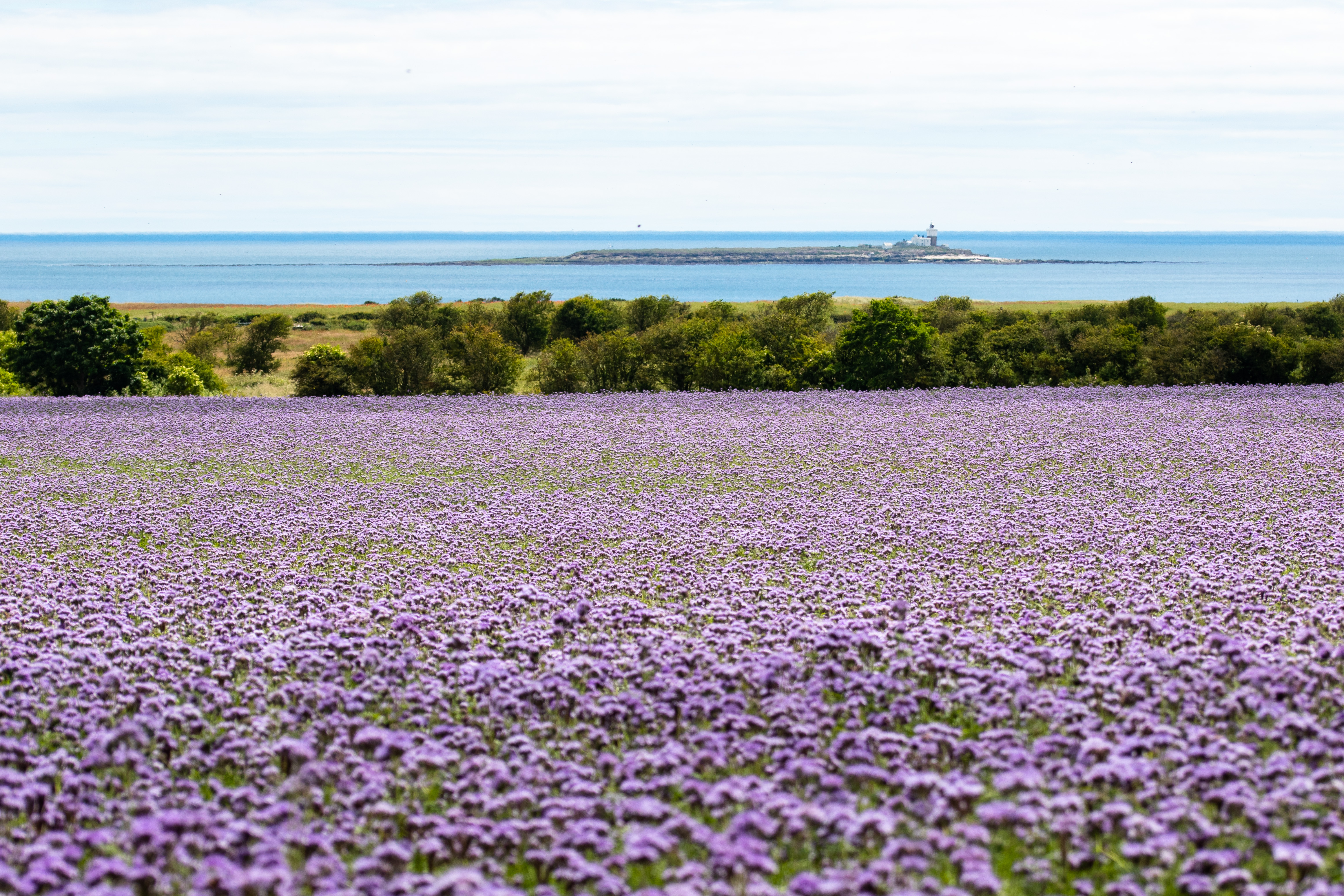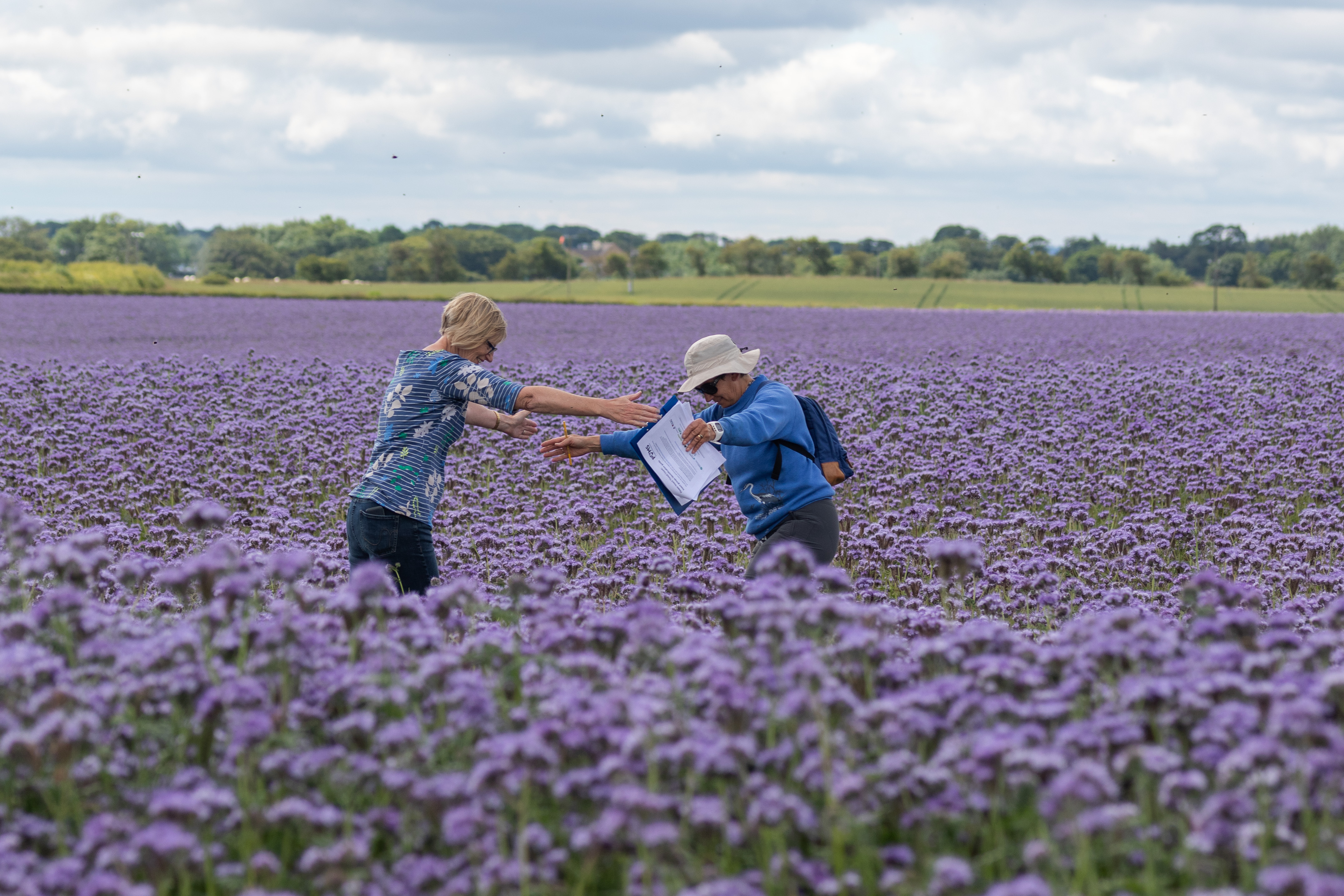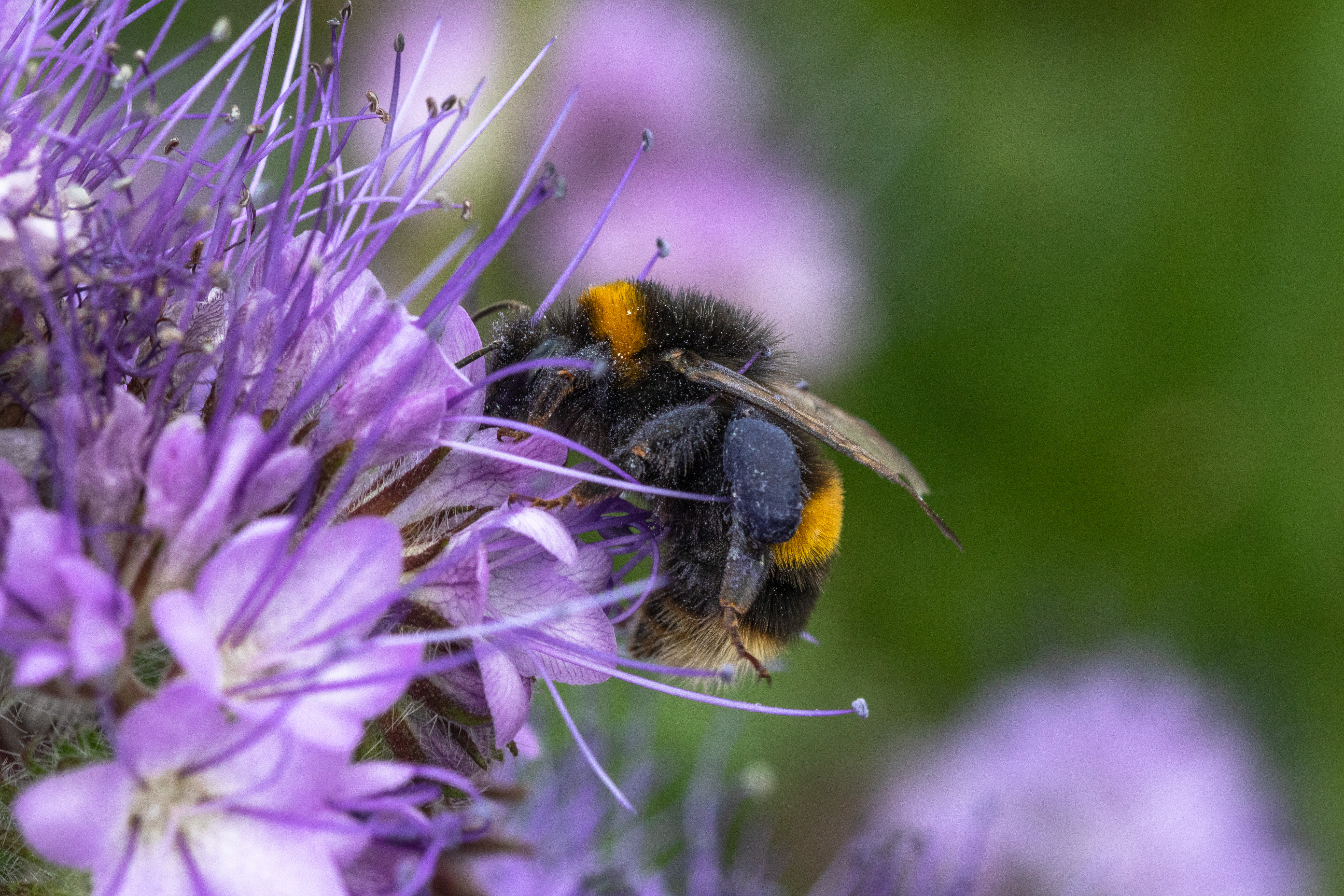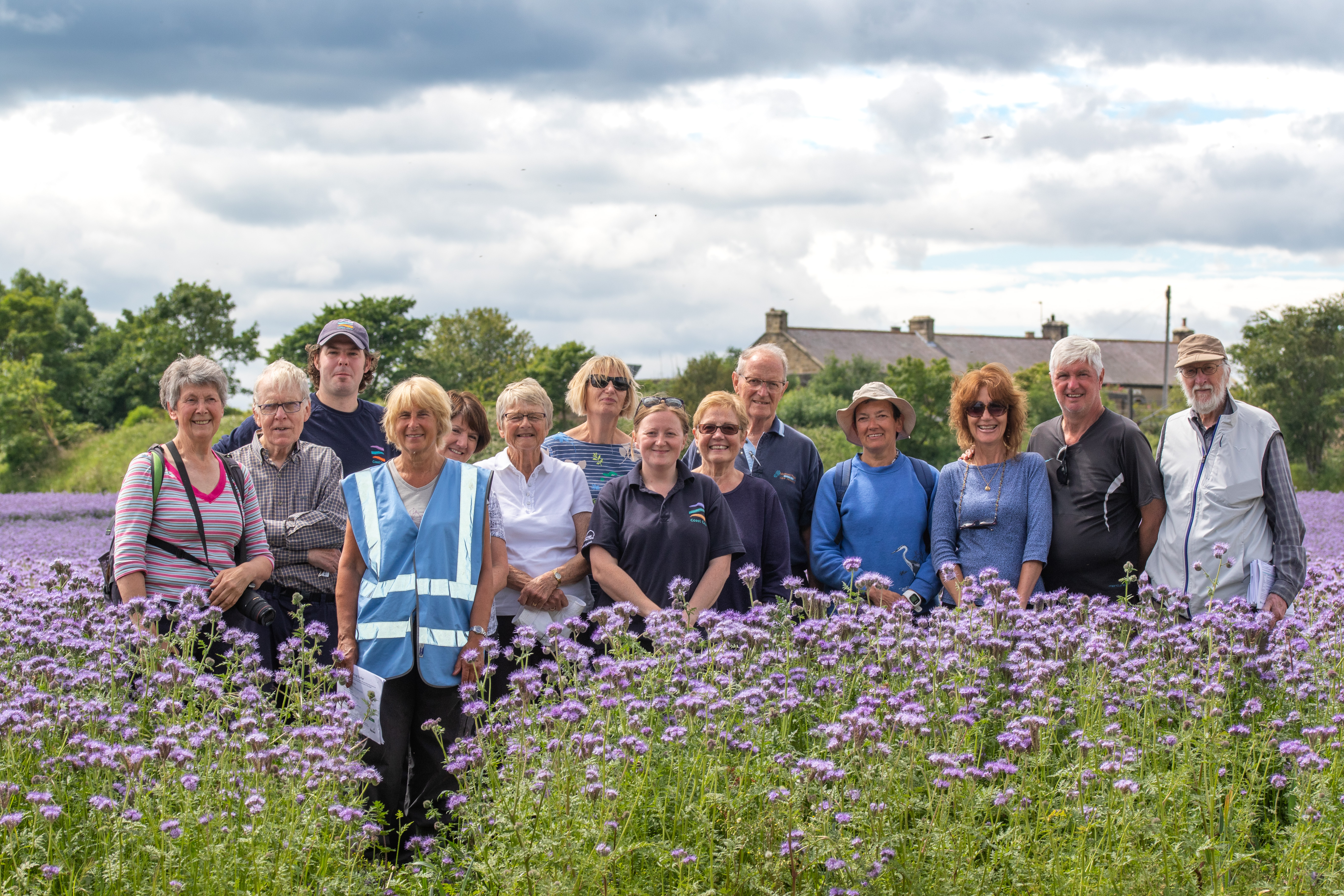

A sea of Phacelia - perfect for pollinators!
The work we helped John with stemmed from a complete coincidence and happy accident. A plant called Phacelia or Purple Tansy was planted in a field on Buston Barns Farm by the farmer there, David Park. If you’ve ever driven between Warkworth and Amble you’ve probably seen it; it’s a huge swath of beautiful blue sitting on the hillside through the summer months. It was planted to improve the soil in the field, but it was soon noted to be attracting huge numbers of pollinating insects like bees and butterflies. John wanted to research this further to find out how the Phacelia was benefiting the insects. It takes a lot of effort and people to survey such a large area though. That’s where Coast Care came in!

Coast Care volunteers conducting survey work
John trained a group of Coast Care volunteers in the survey technique that he wanted to use, and then set them away in teams of two to survey the field. We spent a lovely sunny afternoon doing the work, then John went away to analyse the results. This is what he found:
- Over three million honey bees and two million bumble bees were feeding in the field (we can’t say this for sure after just one afternoons surveying, but it certainly shows that an impressive number of bees are visiting!)
- The field could be supporting 95 colonies of honey bees within 18 square miles of the field.
- Many other insects were also recorded, indicating that Phacelia can increase the biodiversity on farmland.

Many different pollinators are feeding on the Phacelia
These results are a great starting point for John and others to look into the benefits of Phacelia for our pollinators, and to encourage other farmers and landowners to plant it. We all know the plight that our bees are in, so anything we can do to give them a helping hand is a really positive step. It’s also really important for our own survival since we rely so heavily on pollinating insects for our food.
The project was also an amazing opportunity for our volunteers to learn how to identify different species of bee from an expert, as well as being able to find out more about their ecology and behaviour, why they are so important to us, what the threats to them are and how we can help. We learned that 65% of our food relies on pollinators and that Einstein once said ‘If bees die out tomorrow, mankind has three years to survive’. John also explained why climate change, the intensification of agriculture and the use of neonicotinoid pesticides were such a problem, and had lots of suggestions of really easy things that we can all do as individuals to help.
Thanks to David Park and John Hobrough for the opportunity to help on this project, and to all of our volunteers for getting involved!

A happy team after a job well done!
